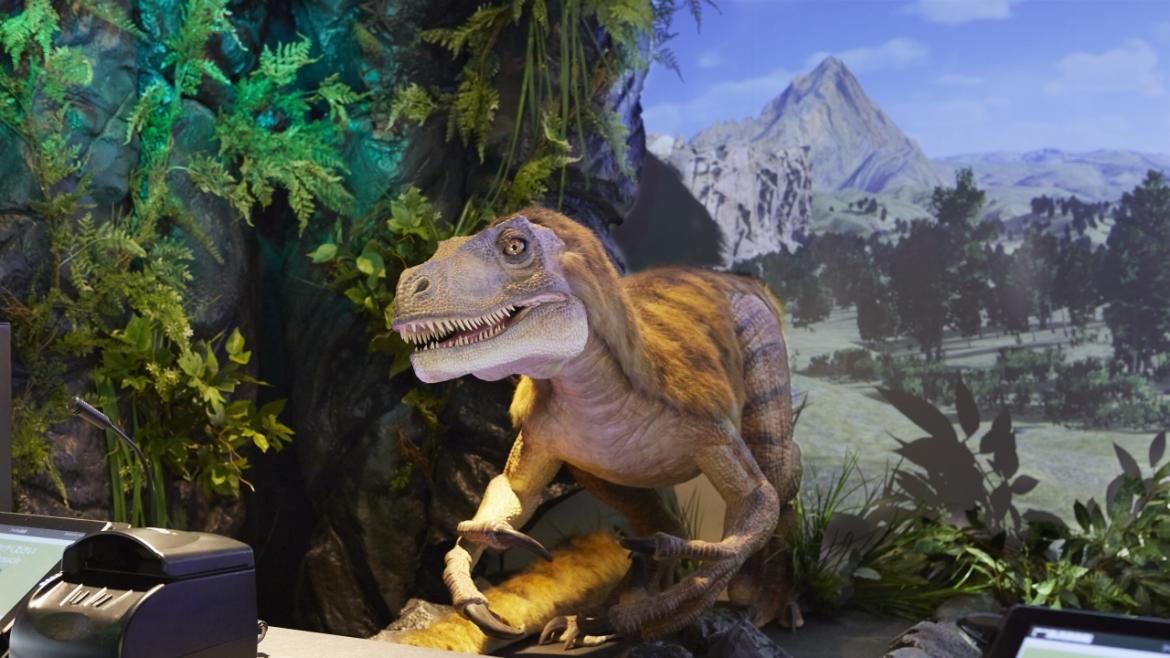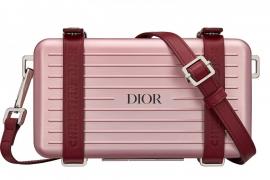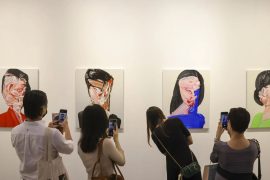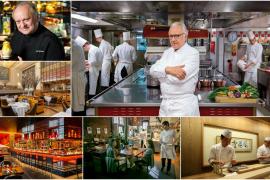Technology-driven hotels are revolutionising hospitality experiences for guests who are happy to swipe, talk to robots or take a ‘holiday on the moon’
In today’s scroll up and down culture, technology is bound to filter into the arena of luxury hotels.
Countering most operators offering a range of personalised experiences is a growing trend of establishments that feature check-in through an app, swipe-able light switches, a multilingual robotic dinosaur concierge, or a lunar resort designed for rain-free holidays.
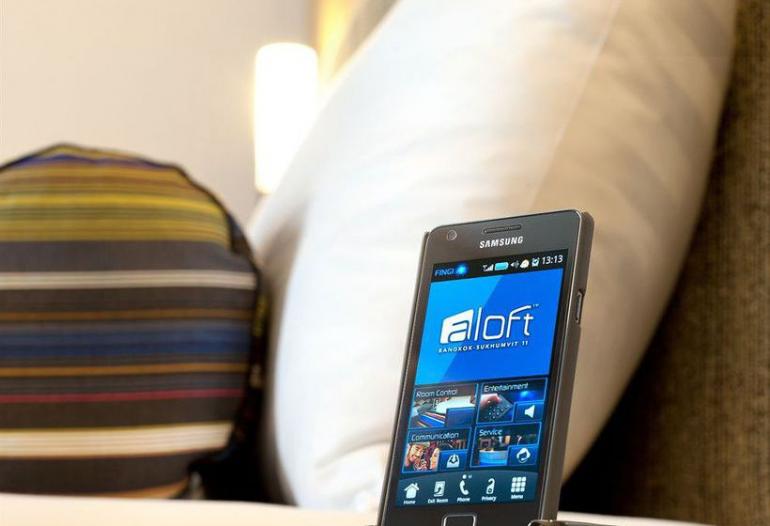
1. Bangkok: Aloft Bangkok Sukhumvit 11
Launched in late 2011 in the heart of Bangkok, this Aloft property is the grand dame of hi-tech hotels. Of the 296 guestrooms and suites in W hotels’ hipster sister, 49 are Touch Rooms equipped with FINGI, a room key that doubles as a personal smart phone.
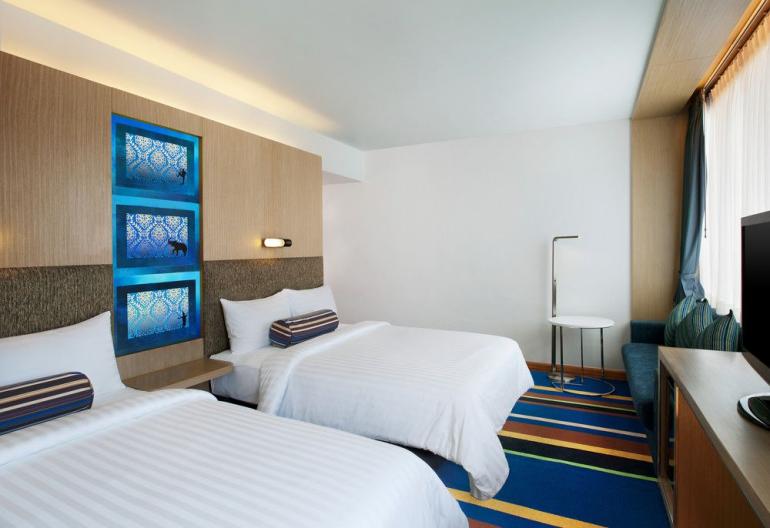
Use the key (or your own smart phone) to navigate the confusing soi, or alleys, near the hotel, carry around iPads with Wi-fi on the go, book tables in local restaurants, or stay in touch with family back home.
Inside the guest room, FINGI controls lights and air conditioning. The all-day-dining restaurant Crave offers a 3,000-bottle wine cellar catalogued on its iPad for guests to swipe for pairings with Thailand’s famous fried noodle dish, pad thai.
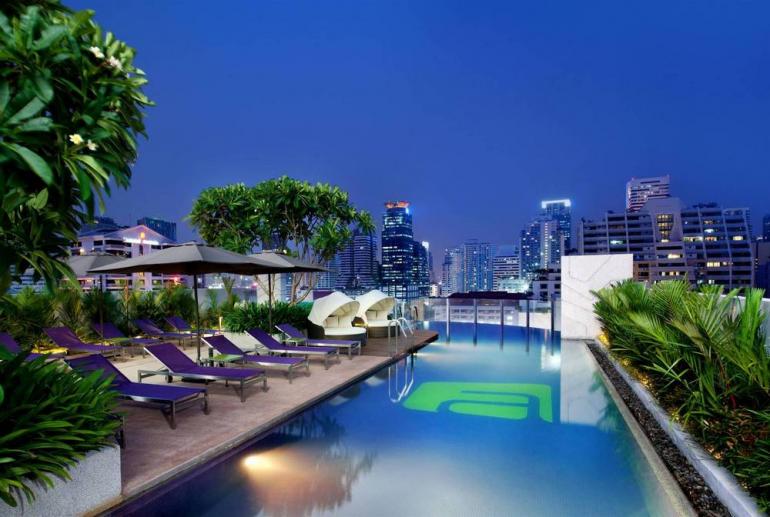
https://www.marriott.com/hotels/travel/bkkal-aloft-bangkok-sukhumvit-11/
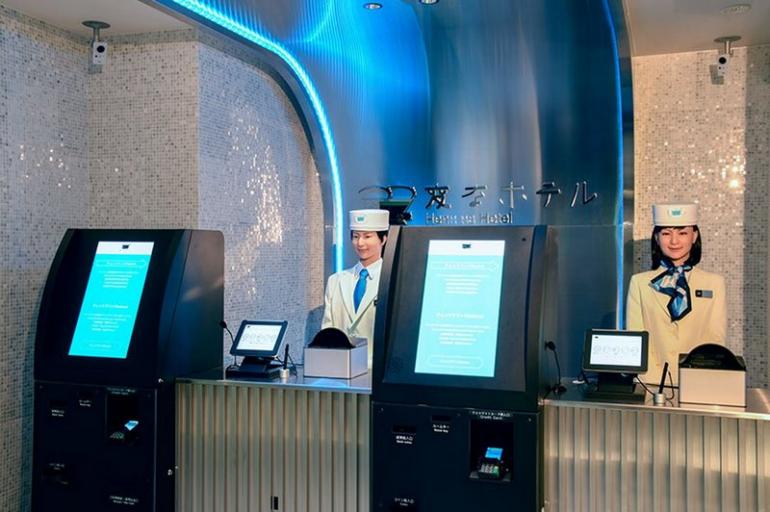
2. Tokyo: Henn-na
Henn means “strange” or “change” in Japanese. It is also the name of a hotel brand, which opened in Ginza in 2015, that offers the experience of a Doctor Who episode. You have the choice of speaking to a fetching Japanese she-bot – or a dinosaur, if you wish – programmed to speak your language when you check in.
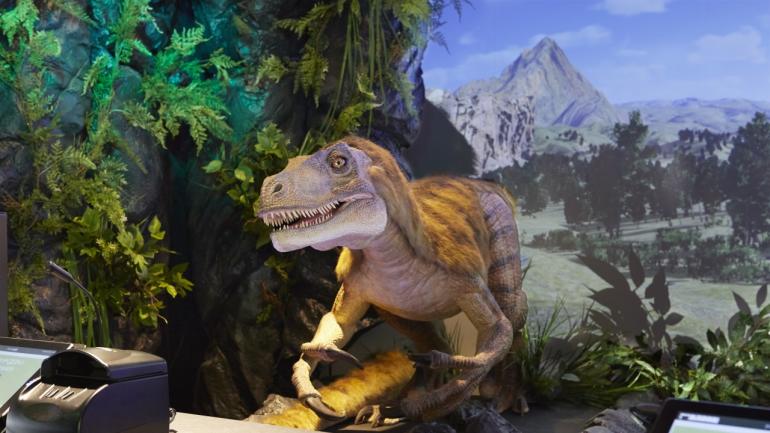
Robots carry the luggage to your room, and there is an in-room robot akin to a personal butler. The idea is to reduce staffing costs while providing guests with numerous talking points.
Although the brand’s robots have been experiencing a few hiccups recently, it hardly is Westworld-like situation – a second generation of robots will come to the rescue before you can say “domo arigato, Mr Roboto”.
http://www.h-n-h.jp/en/
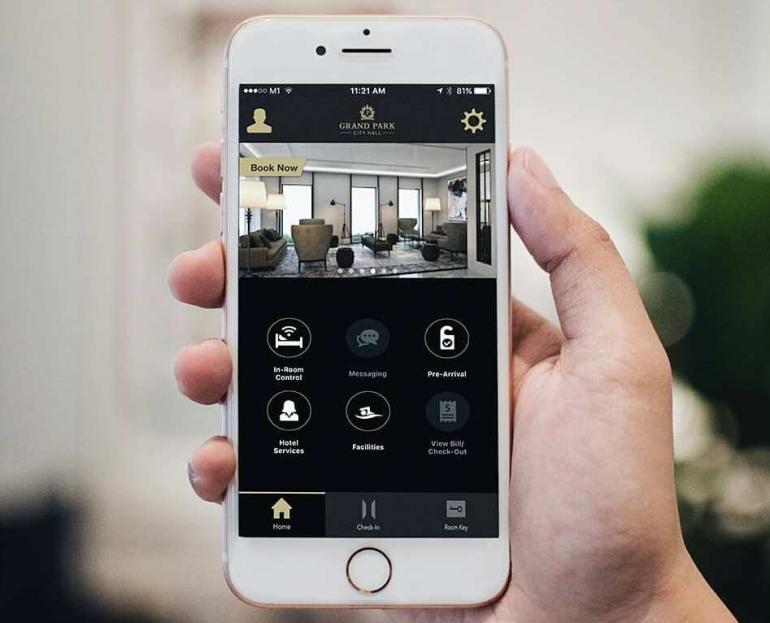
3. Singapore: Grand Park City Hall
Park Hotel Group recently renovated its luxury 343-room flagship hotel in City Hall Square, everyone checks in via an app, which controls the lift buttons, opens doors, switches on lights, air conditioning and televisions inside rooms, and keeps guests updated on events at the hotel and around town.
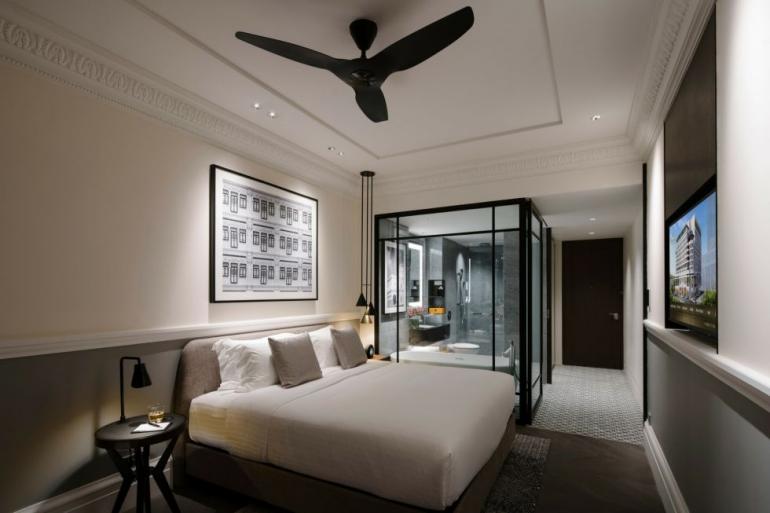
The idea is to reduce energy consumption, both by saving guests from walking around to turn off lights and by reducing unnecessary usage.
“Grand Park City Hall is a shining example of a development that successfully bridges design excellence, urban development and sustainable tourism,” says Allen Law, CEO of Park Hotel Group. “We are already reaping the benefits of these decisions with lower utilities consumption and costs.”
https://www.parkhotelgroup.com/en/cityhall
4. Hangzhou: Alibaba FlyZoo Hotel
Jack Ma, CEO of e-commerce giant Alibaba (which owns the South China Morning Post) is jumping on the hi-tech hotel bandwagon with the December opening of the company’s FlyZoo Hotel, a hotel in Ma’s Alibaba home base of Hangzhou.
It uses Tmall Genie, an artificial intelligence management system that takes orders from guests. While a few human staff are employed to take care of housekeeping, robots – produced at Alibaba’s A.I. Labs – look after room service and laundry, and interact directly with guests through voice prompts and gestures.
The product lets you into your room via facial recognition screens, and guests can shop furniture and other consumer goods via a purchasing app.
https://www.alibaba.com/
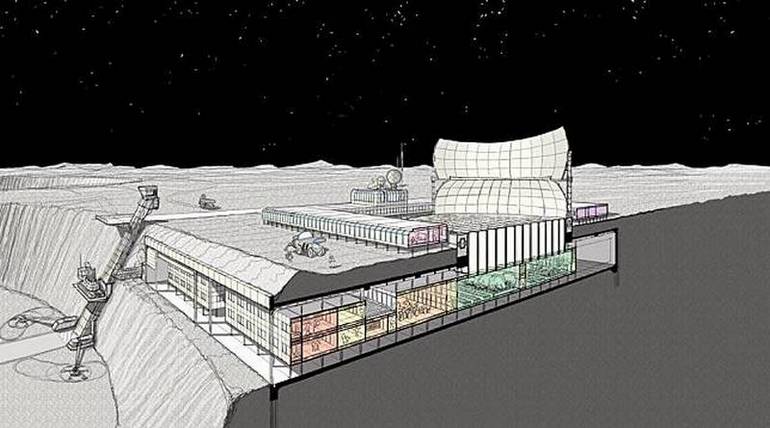
5. Moon: Moon Capital
OK so this one isn’t actually in Asia; nor is it on the moon – yet. But Hong Kong-based American architect Thomas Schmidt’s design for Moon Capital may be just the solution for when Richard Branson, Jeff Bezos and Elon Musk take their well-heeled guests to the moon and need to find a decent place for them to stay.
Schmidt’s Moon Capital won the American Institute of Aeronautics and Astronautics’ award for Technical Feasibility and Elegance in a 2011 international competition for a lunar research habitat.
His second-generation, self-contained base is a subterranean facility. Included in Moon Capital is a top-floor lunar hotel for short-term visitors and space tourists.
The hotel is equipped with overhead visual panels for guests to enjoy uninterrupted views of Earth among the stars. “Since the competition, we have been able to fabricate the hotel by 3D printing using lunar soil,” Schmidt notes.
Note – This story was originally published on SCMP and has been republished on this website
